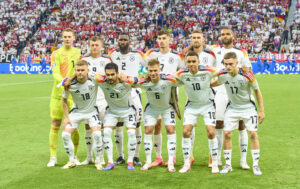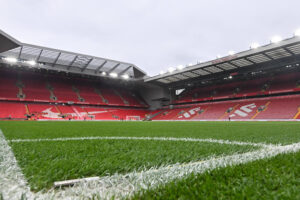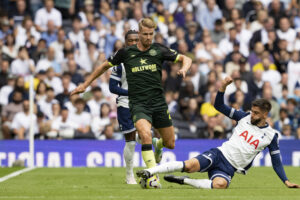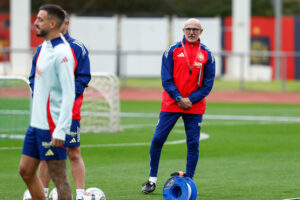Arsenal’s 4-0 hammering at the hands of Liverpool may have surprised some but for many others, it was the continuation of what is becoming a very sad story. They were outfought, outthought and were completely outclassed by a rampant Liverpool outfit.
Perhaps, from an Arsenal perspective, this was a new low. In addition to being second best at in every aspect of the game, there seemed to be a serious lack of effort and commitment on the pitch. Players weren’t even sprinting back, as well as going into tackles half-heartedly. There was zero fight for the manager, the fans or the club as a whole. It was, to be quite frank, a pathetic performance.
Consequently, the display has prompted heavy criticism. Most notably, Sky Sports’ Jamie Carragher labeled them ‘cowards’ and his colleague Gary Neville said that the whole team should be put on the transfer list. Petr Cech also gave a damning assessment of his side’s performance.
That criticism was indeed aimed at their display in Sunday’s match but the reality is that the problems at Arsenal go much further than events on the pitch and have been lasting for far longer than the last few weeks. If anything, the club is the complete antithesis of what they were between 1997 and 2006.
A lot of the blame has been pointed at Arsène Wenger, and some of it justified. He buys the players, picks the team and chooses the tactics according to the opposition in front of him. Managers always receive the blame in modern football, but there is a bigger problem at Arsenal which is going on higher up in the club.
American business entrepreneur, Stan Kroenke, began to buy shares in Arsenal in April 2007 with the aim of expanding his investment in sport and entertainment. Since then, his hold of Arsenal has become stronger to a point where he now owns over 60% of shares in the club. As a result, at Arsenal, what Kroenke says, goes. He is the man who makes the big decisions and it has remained that way for a while now.
Since his takeover, however, it has become increasingly clear that Kroenke is the man behind Arsenal’s problems. His motivation and reasoning behind investing so much at Arsenal have caused much anger and confusion. At the MIT Sloan Sports Analytics Conference in Boston during March of last year, Kroenke explained his theory behind investing in sports teams.
“For me, being an individual owner, I have to have some sort of reality involved,” said the American. “If you want to win championships then you would never get involved. I think the best owners in sports are the guys that sort of watch both sides a bit. If you don’t have a good business then you can’t really afford to go out and get the best players unless you just want to rely on other sources of income.”
Kroenke’s intentions were clear: his priority is to make considerable revenue out of Arsenal, along with his other sports franchises and therefore put success on the pitch on the back burner. Consequently, his expectations of Arsenal and Wenger have been that of finishing in and around the top four in order to bring in substantial income.
Arsenal have suffered badly because of this. Not only is there a lack of ruthlessness at the club, but there is an acceptance that second best will do just fine. With that sort of philosophy, a football club is highly unlikely to succeed in the short or the long-term.
So with Arsenal fans desperately wanting the good times to return, how can the philosophy of the club change? Well, it has to start with Kroenke being forced out. Many may feel that a change in manager is the solution and it may well be, but with the owner’s reluctance to push those below him for success, not much would necessarily change.
Currently, the only man who appears able to stop this continuing is Alisher Usmanov. The business magnate, who earned his fortunes through investing in mining operations and Digital Sky Technologies, first bought shares (14.58%) in Arsenal in August 2007 for £75 million and has repeatedly expressed his admiration for the club. Much like Kroenke, albeit to a lesser extent, Usmanov has gradually built up his shares since then and now owns over 30% stake at Arsenal.
What has become intriguing in recent years with Usmanov is his personal refusal to accept the current situation at the Emirates Stadium. In April this year, he criticised the way in which Arsenal was being run from the top. “I don’t think the coach alone is to be blamed for what’s happening,” said Usmanov said in an interview in Moscow. He also claimed that the board “bear huge responsibility,” for the club’s failures.
His frustration vented, Usmanov decided to put his money where his mouth is not long after in April, making a bid of $1 billion to buy Kroenke’s shares and take control of Arsenal. It signalled his intent to change things at the club. Kroenke rejected the offer, however, and another bid has not been made since.
Usmanov’s comments in recent years have emphasised that, were he to take control of Arsenal, he would not accept the club’s failure to compete for the major trophies and in the process, drag the club out of its current comfort zone. He could be the man to finally instil much-needed pressure on an underperforming club.
The key to Arsenal’s future could well hinge on whether Usmanov is willing to increase his bid to wrest control from Kroenke. It will be a battle but the Uzbek-born Russian certainly has the money. In 2013, the 63-year-old was rated the richest man in the U.K. and he currently has a fortune exceeding $14 billion. The question now is that, after seeing the dreadful display at Anfield on Sunday, are Usmanov’s feelings for forcing change at Arsenal strong enough to push him to make an offer that Kroenke can’t refuse? Time will tell.
It is clear that change is needed at Arsenal, but where that change is made is important. The introduction of Usmanov would certainly signal intent and change. Were he to apply the required support, pressure and drive that the Gunners are crying out for, he could well get the club out of the mess in which it currently finds itself.
Main Photo






